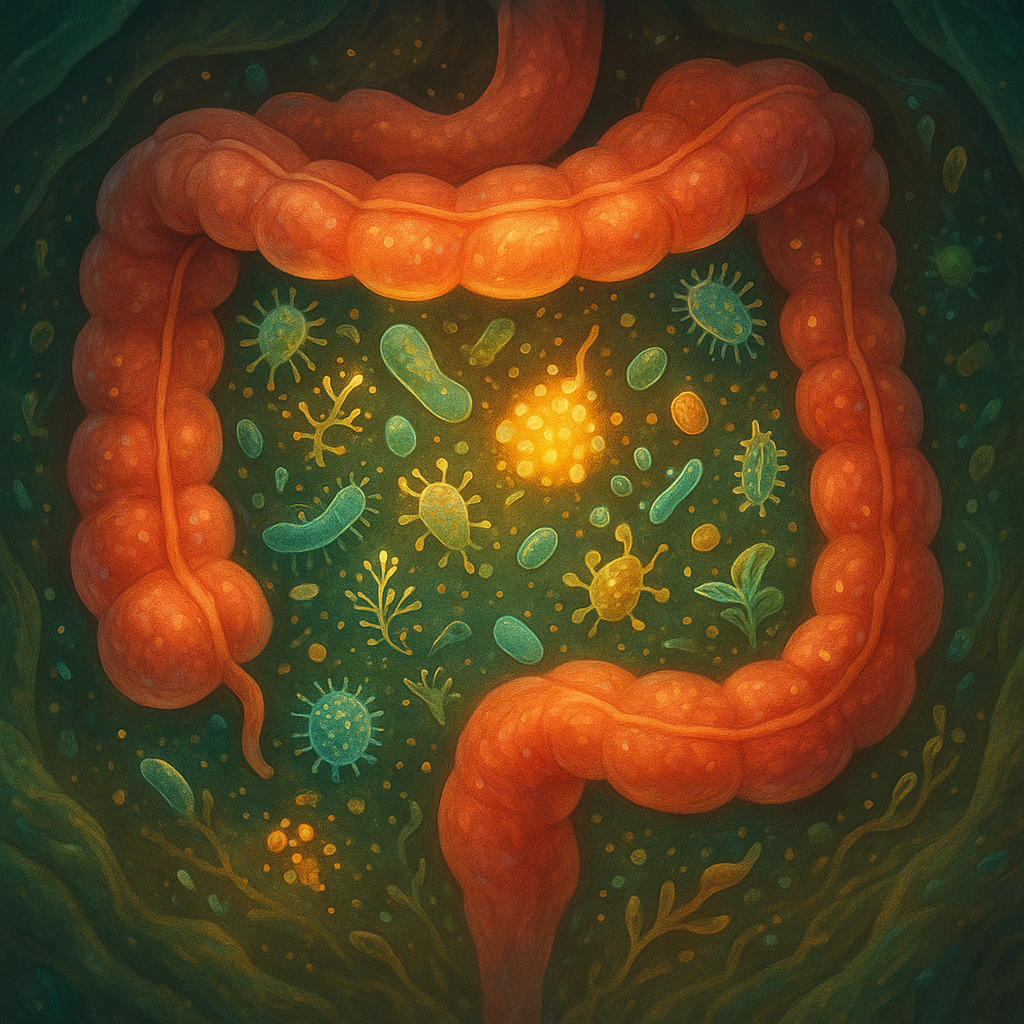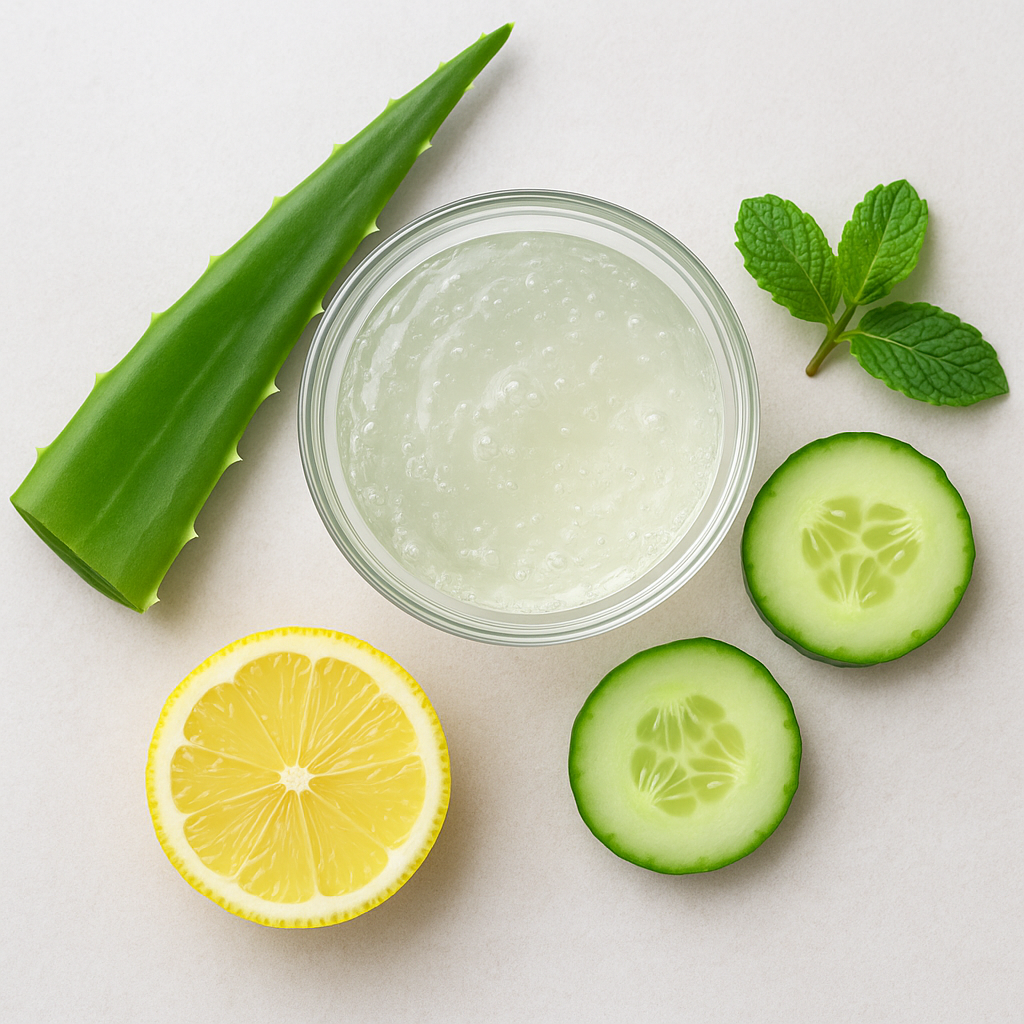A “gut detox” isn’t about extreme fasting or flushing the body with juices it’s about supporting your digestive system’s natural ability to cleanse and repair itself. The human gut works continuously to process nutrients, eliminate waste, and maintain a balanced microbiome a complex community of bacteria vital for overall health. When this balance is disturbed by poor diet, toxins, or chronic stress, it can lead to bloating, fatigue, inflammation, and weakened immunity.
Unlike short-term detox fads, a true gut detox focuses on restoring microbial diversity, improving intestinal barrier function, and enhancing natural detoxification pathways. Nutrient-dense foods, hydration, and prebiotic fibers help the body cleanse efficiently without depriving it. We continue to highlight how lifestyle and dietary changes including fiber-rich meals, fermented foods, detox recipes for gut health and proper hydration promote long-term gut resilience and metabolic health.
Why Gut Detox Matters for Overall Health?
The Gut: Your Body’s Internal Ecosystem
Your gut is more than a digestive organ it’s a living ecosystem containing trillions of microorganisms that influence digestion, metabolism, and even your mood. A balanced gut microbiome helps break down complex nutrients, absorb vitamins, and regulate immune responses. When this balance falters, toxins accumulate, inflammation rises, and digestion slows. Interestingly, studies show that a disrupted gut microbiome can even alter neurotransmitter production, linking gut health directly to emotional well-being through the gut-brain axis.

The Gut–Liver Axis: The Unsung Detox Duo
While most people think of detox as a liver function, the gut-liver axis is a two-way partnership. The liver filters toxins from the blood, but it relies on a healthy gut to excrete those waste products efficiently. If the gut microbiome is imbalanced or sluggish, those toxins can re-enter circulation a process called enterohepatic recirculation. Supporting your gut through fiber, antioxidants, and probiotics not only helps your digestion but amplifies liver detox efficiency. This is one of the most overlooked truths about natural detoxification.
Beyond Digestion: Gut Health Shapes Immunity and Energy
About 70% of your immune system resides in your gastrointestinal tract. The gut lining acts as a gatekeeper, letting nutrients in while blocking pathogens and toxins. When the gut barrier weakens due to processed foods, stress, or sleep deprivation harmful substances can leak into the bloodstream, triggering inflammation and fatigue. Supporting gut detox through prebiotic fibers, fermented foods, and adequate rest restores this protective barrier.
Signs You May Need a Gut Detox
When Your Gut Starts Whispering Before It Shouts
Gut problems rarely begin with pain they start quietly. You might feel bloated after meals, crave sugar more often, or wake up feeling sluggish even after a full night’s sleep. These early signals often mean your microbiome diversity is declining certain beneficial bacteria have been crowded out by inflammatory microbes. When this happens, digestion slows, toxins accumulate, and your body begins to feel “heavy” inside. Many readers find it eye-opening to realize that recurring cravings or low energy aren’t just willpower issues they’re microbial imbalance symptoms that deserve attention.
The Gut–Skin and Gut–Brain Clues Most People Miss
A struggling gut doesn’t only affect digestion. It can appear on your face or in your focus. Breakouts around the chin, persistent dullness, or unexplained rashes are often linked to intestinal permeability (sometimes called “leaky gut”), where toxins escape into the bloodstream and trigger inflammation. Similarly, brain fog or anxiety-like symptoms may arise when certain gut bacteria overproduce neuroactive compounds that disrupt the gut-brain axis. Most “detox guides” skip this, but the truth is: a gut in distress can cloud both your skin and your state of mind.
Nutrient Gaps, Fatigue, and Poor Recovery
If your gut can’t properly absorb nutrients like B vitamins, magnesium, or amino acids your body’s repair processes slow down. You might notice slower muscle recovery, constant fatigue, or even thinning hair. This happens when digestion is impaired by low stomach acid or microbial imbalance, leading to nutrient malabsorption. Supporting your gut’s detox and repair mechanisms helps reset nutrient absorption and energy production naturally.
Medical Disclaimer:
This information is for educational purposes only and not a substitute for professional medical advice. Persistent or severe digestive symptoms should always be discussed with a qualified healthcare provider or gastroenterologist.Science Behind Gut Detoxification
Gut Detox Is Microbiome Restoration — Not Cleansing
The gut doesn’t detox the way social media suggests; it detoxes by maintaining microbial balance. When you eat fiber-rich foods, your gut bacteria ferment them into short-chain fatty acids (SCFAs) like butyrate and acetate. These compounds fuel intestinal cells, strengthen the gut barrier, and reduce inflammation your body’s real detox process. Without enough fiber, harmful microbes take over, producing toxins that burden the liver and slow metabolism.
Prebiotics, Probiotics, and Postbiotics — The Three Phases of Healing
Most articles stop at probiotics, but the real science goes further:
- Prebiotics (fiber from garlic, oats, bananas) feed beneficial bacteria.
- Probiotics (in yogurt, kefir, kimchi) introduce new healthy strains.
- Postbiotics — the metabolic products those bacteria create actually regulate detox enzymes, support bile flow, and enhance immune tolerance.
This “three-phase ecosystem” helps the gut neutralize toxins before they reach the bloodstream. A 2023 PubMed study showed that probiotic fermentation increased antioxidant enzyme activity in the liver, proving that gut detox is both microbial and metabolic.
Antioxidants and Polyphenols: The Gut’s Cellular Shield
Gut detox isn’t just about bacteria it’s also about cell protection. Polyphenols found in berries, green tea, and turmeric act as prebiotic-like compounds. They’re broken down by gut microbes into bioactive molecules that trap free radicals and reduce oxidative stress in intestinal tissues. This antioxidant–microbiome synergy helps repair the gut lining and balance the gut–liver axis something most detox guides overlook.
Top Detox Foods for a Healthy Gut
1. Fiber-Rich Foods: The Gut’s Natural “Scrubbers”
Chia seeds, oats, apples, flaxseeds, and leafy greens are the foundation of a real gut detox not because they push waste out, but because they feed your microbiota. Soluble fibers in oats and apples ferment in the colon, creating short-chain fatty acids (SCFAs) that heal the intestinal lining and reduce inflammation.
What many people don’t know: when chia seeds absorb water, they form a gel-like mucilage that gently binds to metabolic waste and slows sugar absorption a double win for cleansing and blood sugar control. It’s this mechanical gel action, not a “flush,” that makes chia an intelligent detox food.
2. Fermented Foods: Living Detox Laboratories
Most articles mention yogurt and kefir but rarely explain why they detox. These foods don’t “remove toxins”; they train your gut microbes to do it. Fermentation creates lactic acid bacteria and postbiotics small molecules that suppress harmful bacteria, enhance bile flow, and trigger antioxidant enzymes in the liver.
Sauerkraut and kimchi contain bioactive peptides that help regulate the intestinal barrier, making it less “leaky.” Kefir, meanwhile, produces exopolysaccharides natural compounds that calm inflammation in the gut lining. It’s not just about probiotics; it’s about what these microbes produce inside you after you eat them.
3. Hydrating Ingredients: Cellular Detox Support
Detoxification doesn’t happen without water every metabolic pathway depends on it. Cucumber, lemon, and aloe vera go beyond hydration; they bring electrolytes and phytonutrients that support mucosal healing. Aloe vera, in particular, contains acemannan, a rare polysaccharide that soothes the intestinal wall and may improve nutrient uptake. Lemon water’s mild acidity stimulates bile secretion, aiding the body’s natural toxin elimination.
Most gut issues come from chronic dehydration at the cellular level drinking structured fluids with electrolytes and fiber (like cucumber + chia) hydrates from within, not just the bloodstream.

4. Anti-Inflammatory Foods: Gut Calm and Repair
Inflammation is the silent disruptor of gut detox. Ginger and turmeric are your microbiome’s best allies here. Ginger stimulates gastric motility meaning it keeps food moving smoothly and prevents stagnation (a hidden cause of toxin buildup).
Turmeric, powered by curcumin, does something few detox articles mention: it increases bile acid metabolism and feeds Akkermansia muciniphila a beneficial gut bacterium linked to lower inflammation and improved metabolic balance. When paired with black pepper (piperine), turmeric’s bioavailability rises dramatically, allowing it to work where it truly matters in your gut lining.
5 Detox Recipes for Gut Health
1. Morning Lemon-Ginger Gut Cleanser
Benefits:
Kickstart digestion, stimulate bile flow, and support microbial balance first thing in the morning.
Ingredients:
- 1 cup warm filtered water
- Juice of ½ lemon
- 1 tsp freshly grated ginger
- 1 tsp raw honey (optional)
- Pinch of sea salt
Instructions:
- Mix all ingredients in a glass of warm water.
- Sip slowly on an empty stomach.
Nutritional Tip:
Lemon’s citric acid activates digestive enzymes, while ginger enhances gastric motility and reduces bloating. The combination gently stimulates the liver–gut axis for natural detoxification.
Best Time:
Morning — 15–30 minutes before breakfast.
2. Green Fiber-Rich Detox Smoothie
Benefits:
A powerful fiber and polyphenol blend to nourish gut bacteria and restore intestinal barrier integrity.
Ingredients:
- 1 cup spinach or kale
- ½ green apple
- ½ cucumber
- 1 tbsp chia seeds
- ½ lemon (juiced)
- 1 cup coconut water
Instructions:
- Blend all ingredients until smooth.
- Drink immediately to preserve enzymes.
Nutritional Tip:
Chia provides soluble fiber and mucilage, which bind toxins and support microbial fermentation into short-chain fatty acids (SCFAs). Coconut water aids electrolyte balance key for gut hydration.
Best Time:
Mid-morning or post-workout for energy and digestion.
3. Fermented Veggie Bowl
Benefits:
A meal that combines fiber, probiotics, and antioxidants for microbiome repopulation.
Ingredients:
- ½ cup sauerkraut or kimchi
- ½ cup cooked quinoa or brown rice
- ¼ cup shredded carrots
- ¼ avocado (sliced)
- 1 tsp sesame seeds
- 1 tbsp olive oil or kefir dressing
Instructions:
- Assemble all ingredients in a bowl.
- Drizzle with olive oil or fermented dressing.
- Mix gently and serve chilled.
Nutritional Tip:
Fermented veggies contain lactic acid bacteria and postbiotics, which strengthen the gut lining. Quinoa adds resistant starch a prebiotic fuel for healthy microbes.
Best Time:
Lunch or early dinner.
4. Aloe & Cucumber Hydration Juice
Benefits:
Soothes the gut lining, supports hydration, and promotes smooth elimination.
Ingredients:
- ½ cup aloe vera gel (fresh or food-grade)
- ½ cucumber
- ½ green apple
- 1 cup water or coconut water
- Few mint leaves
Instructions:
- Blend all ingredients until smooth.
- Strain if desired and serve cold.
Nutritional Tip:
Aloe’s acemannan helps repair intestinal mucosa and enhances nutrient absorption. Cucumber and mint provide antioxidants that cool inflammation and assist gentle detox.
Best Time:
Midday or afternoon especially in warm weather.
5. Turmeric & Chia Overnight Oats
Benefits:
A gut-healing breakfast loaded with anti-inflammatory compounds, prebiotic fiber, and omega-3s.
Ingredients:
- ½ cup rolled oats
- 1 cup unsweetened almond milk or kefir
- 1 tsp turmeric powder
- 1 tbsp chia seeds
- ¼ tsp black pepper
- 1 tsp honey or maple syrup
- Pinch of cinnamon
Instructions:
- Mix all ingredients in a jar.
- Stir well and refrigerate overnight.
- In the morning, stir again and enjoy cold.
Nutritional Tip:
Turmeric + black pepper enhances curcumin absorption, supporting the gut–liver detox pathway. Chia forms a gel matrix that slows glucose absorption and nourishes probiotic bacteria.
Best Time:
Morning or as a post-fast meal.
Tips to Support Natural Gut Detox
- Proper hydration helps intestinal motility, supports bile secretion, and allows gut microbes to efficiently metabolize fiber into short-chain fatty acids (SCFAs). Include water-rich foods like cucumber, celery, and watermelon to enhance internal hydration.
- Excess sugar and highly processed foods feed harmful gut bacteria and promote inflammation. Reducing these foods improves microbiota diversity, stabilizes blood sugar, and allows beneficial microbes to thrive, enhancing the gut’s natural detoxification capacity.
- Chronic stress can disrupt the gut–brain axis, slowing digestion, reducing microbial diversity, and weakening the intestinal barrier. Simple practices like meditation, deep breathing, or a short daily walk can regulate cortisol levels and support gut detoxification naturally.
- Sleep regulates circadian rhythms, which control gut motility and microbial activity. Aim for 7–9 hours per night. Regular exercise stimulates intestinal movement, reduces inflammation, and supports healthy microbiome balance, further enhancing your body’s natural detox pathways.

When to Seek Medical Advice
Even though gut detox routines can refresh your digestion, sometimes the symptoms you’re trying to fix may point to a deeper issue. Knowing when to ask for professional help can save you months of trial and error.
Persistent or Worsening Digestive Symptoms
If you notice chronic bloating, abdominal pain, irregular bowel habits, or unexplained fatigue, it’s not just poor diet it could be gut dysbiosis or inflammation.
When these issues persist for more than two weeks despite dietary adjustments, it’s time to consult a gastroenterologist or registered dietitian.
Underlying Conditions: IBS, IBD, and Lactose Intolerance
People with Irritable Bowel Syndrome (IBS), Inflammatory Bowel Disease (IBD), or lactose and gluten intolerances often need personalized detox plans.
For example, a “high-fiber detox” that benefits most people might actually worsen symptoms for someone with IBS due to excess FODMAPs.
Conclusion
A consistent, science-backed gut detox routine can improve digestion, enhance nutrient absorption, reduce inflammation, and support overall immunity. By incorporating fiber-rich, fermented, hydrating, and anti-inflammatory foods, along with lifestyle practices like hydration, stress management, sleep, and physical activity, you create the ideal environment for your microbiome to thrive.
Try the recipes and tips provided consistently to see real results from better digestion and energy levels to healthier skin and mood. Remember, gut health is a long-term journey, not a one-time cleanse. Supporting your digestive system every day ensures sustainable wellness and a resilient gut.
FAQ’s
Q1: How often should you detox your gut?
A: A gentle, food-based gut detox can be incorporated regularly, such as through daily meals rich in fiber, fermented foods, and hydrating ingredients. Extreme cleanses are not recommended.
Q2: Are gut detox drinks safe for everyone?
A: Most natural detox drinks are safe, but individuals with chronic conditions, allergies, or digestive sensitivities should consult a healthcare professional before trying them.
Q3: Can probiotics help cleanse the gut?
A: Yes. Probiotics support microbiome diversity and help restore balance, indirectly assisting the gut’s natural detoxification processes.
Q4: What foods heal the gut fastest?
A: Foods rich in fiber, prebiotics, fermented cultures, antioxidants, and anti-inflammatory compounds such as oats, chia, yogurt, kimchi, turmeric, ginger, and aloe help repair the intestinal lining and support microbiome health.

 Medically reviewed by
Medically reviewed by